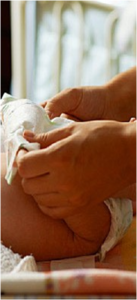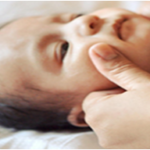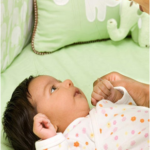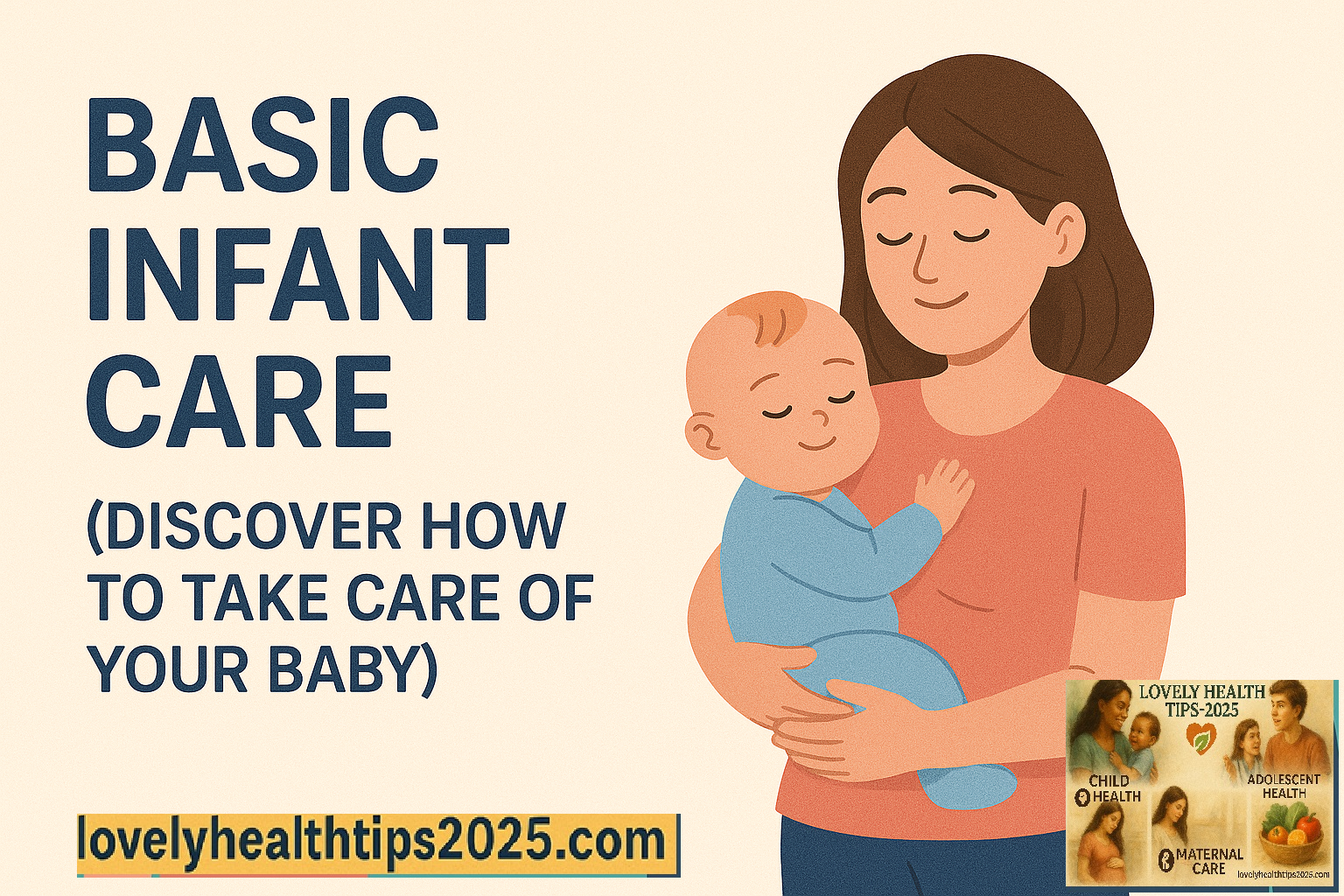Last Updated on October 21, 2025 by
Basic Infant Care :The practice of infant care requires delivering basic care functions while assigning attention to support newborn development for good health
Basic Infant Care:
These fundamental infant care options contain essential aspects for a newborn child’s proper growth. You may have anxiety even when performing everyday duties like dressing and changing diapers. Do not be concerned. Eventually, you would get the self-assurance of a seasoned parent. You will be informed about the most important information regarding how your baby likes to be held, spoken to.
Providing feeding for Your Infant
From the very first hour after delivery until the child is six months old, keep breastfeeding her. During the first week, holding your infant near will assist establish lactation.
Breastfeeding:
Preparing the baby to be breastfeeding – Basic Infant Care
Infant Care : It involves providing an essential care with proper attention to ensure a newborn’s healthy growth with development. Some of the important aspects of basic infant care are as follows:
When
- Breastfeeding is established and maintained when there is rapid skin-to-skin contact after birth and no separation of the infant from the mother. Newborns have a keen sense of smell, and nearly all of them can detect the scent of their mother’s breast milk.
- Make careful to give the newborn its first dose of milk or colostrum. Each intake of baby food should be limited to a small spoon amount because of this dense nutritional content.
- Letting down and properly latching onto the breast: The mother’s breast is prepared to make milk once your baby is born. The baby may be able to suck after holding on the areola rather than the nipple.
- As soon as the baby is born, the first feeding should take place.
- Calm mother: The mother will release the milk more quickly if she is more at ease and self-assured.
- Frequency: Your baby’s sucking will be encouraged and milk production will increase when the mother breastfeeds more frequently. The baby determines the optimal feeding schedule for herself as Basic Infant Care.

At what time intervals should I provide milk to my baby?
- Feeding schedules of baby varies under different situations. In general, throughout the first few weeks of life, your infant should be fed at least eight times or more every 24 hours. The acceptable time to feed your baby occurs during hunger periods or when your breasts become full and also when you simply want to hold your baby. You cannot overfeed a breastfed baby. Breastfed newborns generally feed much more often than bottle-fed babies.
- Once the milk comes in, a newborn will typically nurse eight to twelve times a day. This does not mean that the youngster does not always get proper milk. The infant determines for herself the ideal feeding schedule for Basic Infant Care
Your infant may become hungry
- Grow agitated
- Swish their fingers or fist.
- They give sounds that resemble the sounds of muttering.
- They open mouth and turn their head (rooting).
- Since it’s challenging to feed a crying baby, it’s ideal to attempt feeding the infant during these early feeding signals.
- The initial weeks in breastfeeding lead to an enormous increase in volume of milk. One may only produce one teaspoonful, or five milliliters, at each meal during the first few days, but by the fourth or fifth day, the volume may have increased to twenty to thirty milliliters.
Recognize signs showing that infant is getting enough as below.
Usually, the baby’s diapers give away whether or not she is getting enough milk. Though in the beginning period, the child may wet a single diaper, on the seventh day, they tend to wet more than six and produce over three, yellow bowel movements.
Feeding Habits
Each baby is different in his/her feeding pattern. When placed on the breast, some would begin right away. It would take time for some. It is easy to become continually frustrated at understanding this behavior.
Immunization
The infant will receive shots for oral polio, hepatitis B, BCG, and vitamin K1 on the first day. The vitamin K1 vaccine is administered within an hour after birth to protect neonates from rare bleeding abnormalities that could cause major issues.
Reacting to the Cries of Infants. Your baby has a number of reasons for crying.
- She can block off voices, light, and other sensations that are too strong for her thanks to it.
- It also helps her decompress.
- Focus on listening attentively to the different cries which your baby produces.
- The cause becomes clear after brief observation.
- When you notice that a child cries, you should endeavor to address their needs that are most urgent.
Getting Your Infant to Sleep
From the first week until she is between two and four weeks old, the infant will have a distinct sleep schedule. She may sleep during the day and stay up at night. You are supposed to relax when your infant sleeps. Allowing light in when the infant is awake and minimizing bright light when the infant is asleep to provide a comfortable environment. Sleep will gradually decrease from the 16–18 hours that babies generally sleep. Several steps exist to help your infant achieve better sleep including:
- Several steps exist to help your infant achieve better sleep including:
- It involves feeding your baby until he/she is fully satisfied and then making his/her comfortable position, before attempting to make him/her sleep.
- Correct knowledge and appropriate rest openings maintenance of child sleep patterns.
- Let the infant continue her own sleep schedule.

The Movement of the Bowel and Urine.
With adequate feeding, a born-baby would normally make urination six to eight times daily. The mother should be conscious of the insufficiency of her milk if the infant passes less urine. When a baby does breast milk, they pass semi-solid faeces but every now and then they don’t pass anything. Of course, it’s best not to worry until the baby becomes unwilling to continue eating, vomits or shows other signs of distress.
Diaper Area : Looking after
- Immediately after you diaper your child, always remember to wash your hands with water and soap. Ensure that you have the right amount of clothes and diapers to change your young ones. Every day 8–12 changes are inevitable. If you plan to clean and reuse or dispose of soiled diapers, first be sure to create a temporary storage container for dirty diapers with a lid. In the diaper area, all factors of over-hydration, occlusion, friction, and maceration are present.
- The best way to clean the diaper region is with water and a moist towel. The usage of cloth napkins, which should be changed often, is recommended for mothers. Distinct attention should be given to keep the area free from moisture. Distinct attention should be given to keep the area free from moisture, wing feces, the region can be cleaned with cotton balls or wet cloths soaked in lukewarm water. Barrier creams with zinc oxide and petroleum-based preparations could be utilized if diapers are being used. Cloth napkins should be washed in slightly warm water and using a medium type detergent followed by drying under the sun.

Care of the umbilical cord
Umbilicus needs to be kept clean and dry. The cord should be left out in the open and cleaned with lukewarm water.
Take good care of your scalp.
In newborns, crusts and scalp scaling (peeling of the scalp) are frequent. Fragrance-free baby shampoos may be helpful in getting rid of scales and crusts. Upon the releasing of the cord only should you wash the hair and scalp on the baby. Bi-weekly, parents may have gentle hair & scalp cleanup of child.
Care of the premature infants skin:
Procedures of pre-angiography with small babies must be done with a light touch and gently. Health care professionals and parents should practice good hand hygiene.
Bathing of your infant
- Before you touch the infant, always make sure your nails are cut. You can start cleaning the infant after he or she has stabilized, usually after 48 hours after birth in a newborn of normal weight.
- Giving neonates and infants a regular wash has no negative effects. Baths should be taken every day. Babies may have baths twice or three times a week in hilly areas and during the winter.
- Bathing place of child may be a warm room. Bath water should be of lukewarm temperature, not hotter than 37 degrees Celsius.
- Make sure the water temperature is right, before placing the baby in the bathtub. For babies, drip a bit of water on the scalp, neck folds and groin.
- Cleaning the diaper area last should be your priority when you follow a “front to back” procedure which is normal for unclean regions.
- No more than five minutes should be spent in the bath. Long showers can over moisturize the already sensitive skin of the child and decreases their ability against damage.
Massaging your baby
A newborn’s growth and development are thought to depend entirely on touch. Massage means to touch the baby systematically. Massaging the body improves circulation and muscle tone while it enhances body part suppleness and connects each piece of the body structure.
Benefits of Oil Massage
- Application of oil results in skin barrier improvement as well as heating effects and nutritional support that leads to increased body weight. Additionally, after a massage, infants behave less stressed. Massage to the infant may be done with different oils viz. coconut or sunflower.
- Like in summer, oil massage should be applied before bathing and in winter, oil massage should be applied after bathing.
- The period during which a baby should be massaged is when he is awake and active preferably one or two hours after feeding. Their mother or caregiver must trim their nails and take off their watch and rings. As opposed to being jerky, strokes are to be firm and delicate.
- These featherlike stroke are best applied in the direction head to foot. The infant may not lie motionless, thus it is best to work with rather than against their motions. A whole body massage will take fifteen minutes.

Stimulating and energizing your infant
In developing the brain the trick is providing the right stimulation at the right time. In order to bring out the best in both normal children and parents of high-risk newborns, the stimulation program will be helpful. The program’s therapist need to be the mother. Stimulating environment ensures that child has toys that are age-appropriate.

These are the key points for conducting bonding while performing stimulated actions.
When your child reacts to your cues be supportive. Put the baby close to the mother and do carry the baby when he appears to be disturbed.
- Bonding is also ensured by massage.
- Know the signs that your baby needs space by turning away and spend time enabling them to look into your eyes with love.
- During their first years of existence, babies crave endless amounts of positive touch, and they bloom when their parents love and pay attention to them. You may hear some say, “you are going to spoil the baby,” but this is false when you are addressing your newborn’s needs.
- Support your child when you see that they react to the signals you use.
- You should provide a stream of verbalization about whatever you are doing at that moment. You should instruct the baby by stating “One arm through followed by the other arm then over your head”. Babies eventually learn to anticipate what will happen next thanks to this.
- While you are interacting with your baby through speech, use your words to express their feelings. Both of you will benefit from developing a sensitive relationship as a result. Mention the object your child is fixed on, since you are standing right next to them.

FAQs:
Q1. How often should I give feeding to my newborn on daily basis?
Ans. A newborn requires feeding sessions every 2 to 3 hours throughout the day regardless of being breastfed or consumed formula with 8 to 12 feedings in total within 24 hours.
Q2. What are the safety precaution measures should I take in order to keep my baby rested?
Ans. The right sleep position for babies requires placement on their back while using only a firm mattress which must be empty of all pillows and blankets along with stuffed animals.
Q3. What is the right frequency of my newborn baby should be bathed?
Ans. Newborns should bathe only two or three times during a week. Too many baths will lead to dryness of newborn skin. Clean the diaper area daily.
Q4. If your baby is eating enough, their weight will increase while excreting at least six to eight soft diapers over the course of one day.
Ans. A healthy infant has a steady weight gain and a need intensification of 6-8 times a day and tranquility after nursing.
Q5. The appropriate time for commencing tummy time exercises with my baby?
Ans. Immediately after birth is also an appropriate time to give your infant some short bursts of time on the tummy until he or she gains strength.
Q6. What should my approach be toward the care of my newborn baby’s remaining umbilical cord?
Ans. Keep the stump clean and dry. During one to three weeks of birth of child, they lose umbilical cord stump.
Q7. Scientific experts advise what I should do if my baby develops a fever.
Ans. Please visit to Medical Professional, if the child is younger than 3 months and his/her temperature is more than 100.4°F.
Q8. What are the tricks of soothing a needy baby?
Ans. One way to calm your baby is through rocking, swaddling, singing, using a pacifier and observing their needs for food, rest and a diaper change.
Q9. What is the first date of appointment with Pediatric Specialist to check-up my infant?
Ans. Most of the time, the first trip to a pediatrician is made between three to five days after the child is born.
Guideline of WHO for basic infant care and its link as mentioned below: https://www.who.int/teams/maternal-newborn-child-adolescent-health-and-ageing/newborn-health/essential-newborn-care#:~:text=It%20is%20needed%20both%20in,Thermal%20care
Thanks and Regards
About the Author – “Mr. Bibhu Ranjan Mund”, Master in Public Health (MPH) from IIHMR University, Jaipur (Rajasthan) has experience of 18 years in Public Health activities. Through “Lovely Health Tips-2025”, we share the evidence & experienced based health & wellness guides with solutions for every day well-being. More from Author
Disclaimer
This information is suggestive only and not a replacement for medical advice. For more detail, please visit to my website as mentioned below:

